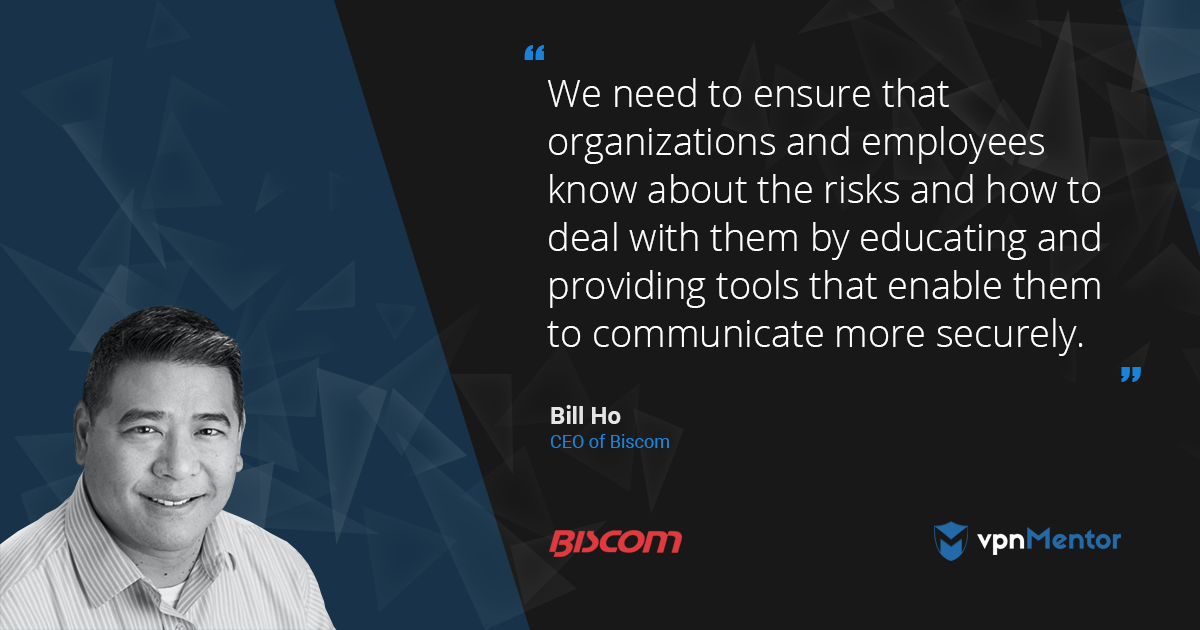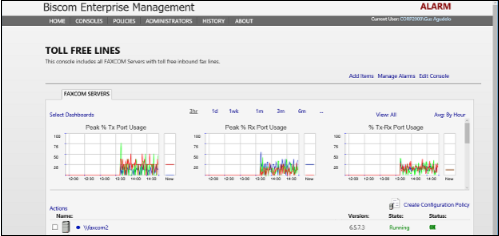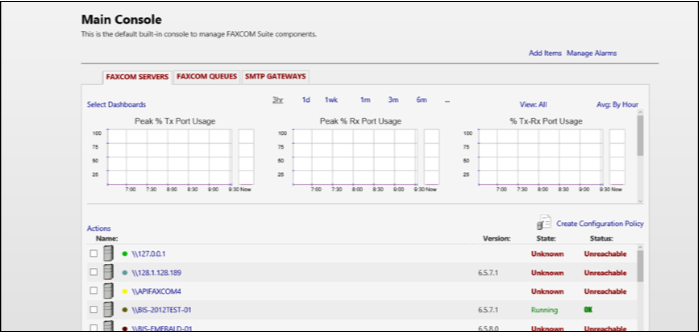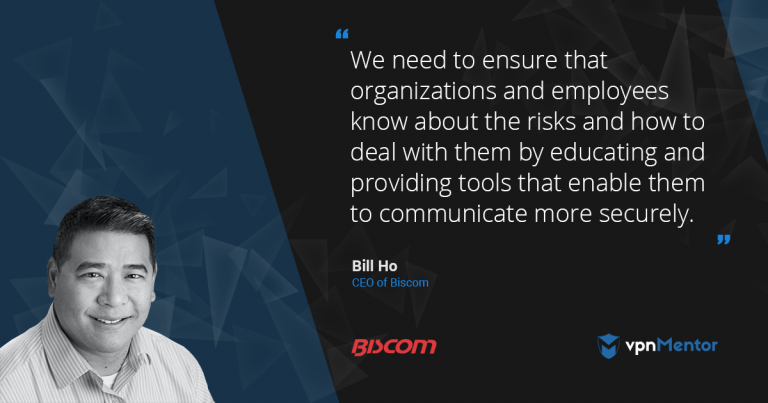
Biscom – Secure Communications for Every Business Owner
- Tell us about Biscom and how you get involved in document delivery security?
- There are many different types of data security products on the market. What is unique about Biscom?
- What are Biscom's primary products and services? What value do you provide clients/customers?
- Let’s talk about Biscom’s role in healthcare data security. What is unique about this type of data and how do you meet the challenges it poses?
- How is Biscom integrated with various services including FTP, email etc? How do you stay scalable and flexible as technologies change?
- Let’s take a step back for a moment. What do you see as the most significant challenges to document and data security today?
- Any final thoughts?
Secure communication is more important than ever as more and more data of all types, from medical records to government documents are being shared. Bill Ho, CEO of Biscom, discusses the importance of securing communications and maintaining data integrity in today’s environment.
Tell us about Biscom and how you get involved in document delivery security?
Biscom has been around since 1986. We created the first network-centric fax server back then – which was a pretty big change from the typical analog fax machine. It allowed larger organizations to centralize their fax capabilities across every single desktop and application and enabled organizations to be much more efficient. Since then, faxing has significantly grown and is still in use digitally for legal or healthcare documents, signatures and the like since it is considered more secure than e-mail.
That was our first foray into document delivery and since then we’ve expanded into other areas such as secure file transfer, secure email, enterprise sync, and more. We’ve made it easier for people to share confidential files securely. For example, in the past, ‘secure email’ was being pushed hard and it was secure, but it was hard to use. We do all the heavy lifting behind the scenes so the end user doesn’t have to worry about encryption keys or data integrity.
As far as my personal background, I’ve been involved in cloud solutions before it was called “cloud” in the late 90’s and had a startup that provided a way to use your mobile device to share files. It was an early consumer-based SaaS solution.
There are many different types of data security products on the market. What is unique about Biscom?
At Biscom, we serve everyone from the individual to the power user in a large organization, but our sweet spot is on the enterprise side – that is where we have made our name. Organizations that require extreme scalability and reliability is where our solution really excels. We designed our solutions to handle large volumes of data and you’ll find that, compared to others, our uptime is unmatched and our ability to scale is market-leading.
What are Biscom's primary products and services? What value do you provide clients/customers?
We have two main areas of focus regarding products. One is our fax solution – which is divided into on-premises solutions, cloud solutions, and hybrid solutions. We see that a lot of people are moving to the cloud but one of the great things about what we do is that our cloud and on-premises solution are identical so you can run them in conjunction. The cloud acts as a redundant back-up and also handles peak loads where excess traffic can be rerouted to cloud.
The other focus is secure file transfer – an on-premises solution and new multi-tenant cloud solution which we are launching later this year. Our solution actually combines both a secure email capability with a way to share very large files, replacing the need for separate email and file transfer solutions.
As far as the markets we serve, we work with a significant number of verticals including healthcare, financial, government, and legal. Those industries are particularly sensitive to any data breaches or compromise due to the confidential information they generate and communicate and compliance requirements such as HIPAA.
We also have solutions that are geared towards individuals, such as Biscom123, which gives users a secure fax solution that is email-based. In addition, we also offer a personal cloud solution for file transfer.
Let’s talk about Biscom’s role in healthcare data security. What is unique about this type of data and how do you meet the challenges it poses?
This industry leaves very little margin for error because any time you have a problem, it not only leaves a bad feeling, but it has the potential for significant damage. In this industry, anything worth sharing, is typically not for public consumption which includes health records, test results etc. Organizations in this space, whether by statute or just because they don’t want their sensitive communications exposed to the outside world, need a solution that can ensure the security and integrity when they’re sharing information between parties.
How is Biscom integrated with various services including FTP, email etc? How do you stay scalable and flexible as technologies change?
From the outset, our primary concern was to ensure that our present-day designs would remain relevant and usable 5 to 10 years down the line. It quickly became evident that the answer lay in implementing an API-driven (Application Programming Interface) solution. Consequently, all of our interfaces are managed through an API, enabling backend updates without necessitating any changes on the client's part. This means the interface for connection stays consistent, even as we regularly enhance the backend, with no impact on the front-end clients.
Let’s take a step back for a moment. What do you see as the most significant challenges to document and data security today?
There are plenty of challenges, primarily because more data is being generated and shared. Whereas companies used to do a lot of their work in-house, now outside contractors and partnerships are key. Companies want to provide value in their specific market and outsource anything that isn’t part of their core business.
So, the growth in outsourcing and data sharing is creating a larger opportunity for hackers to attack that data. That is a real challenge. Today, it’s easier than ever to grab that information and use it to steal identities or commit medical or tax fraud. The biggest issue we see is when people simply don’t understand the threats and how to deal with them. We need to ensure that organizations and employees know about the risks and also know how to protect themselves through education as well as tools that enable them to communicate more securely. Many know that there are security risks but don’t really know how to effectively safeguard themselves or their assets.
Any final thoughts?
What’s fun about working at Biscom is our culture of innovation. Even as a 30-year-old company, we are constantly thinking about how we can improve our solutions and what we can do next. There are always new challenges to be solved, and we enjoy being at the forefront of technology to help address them.




